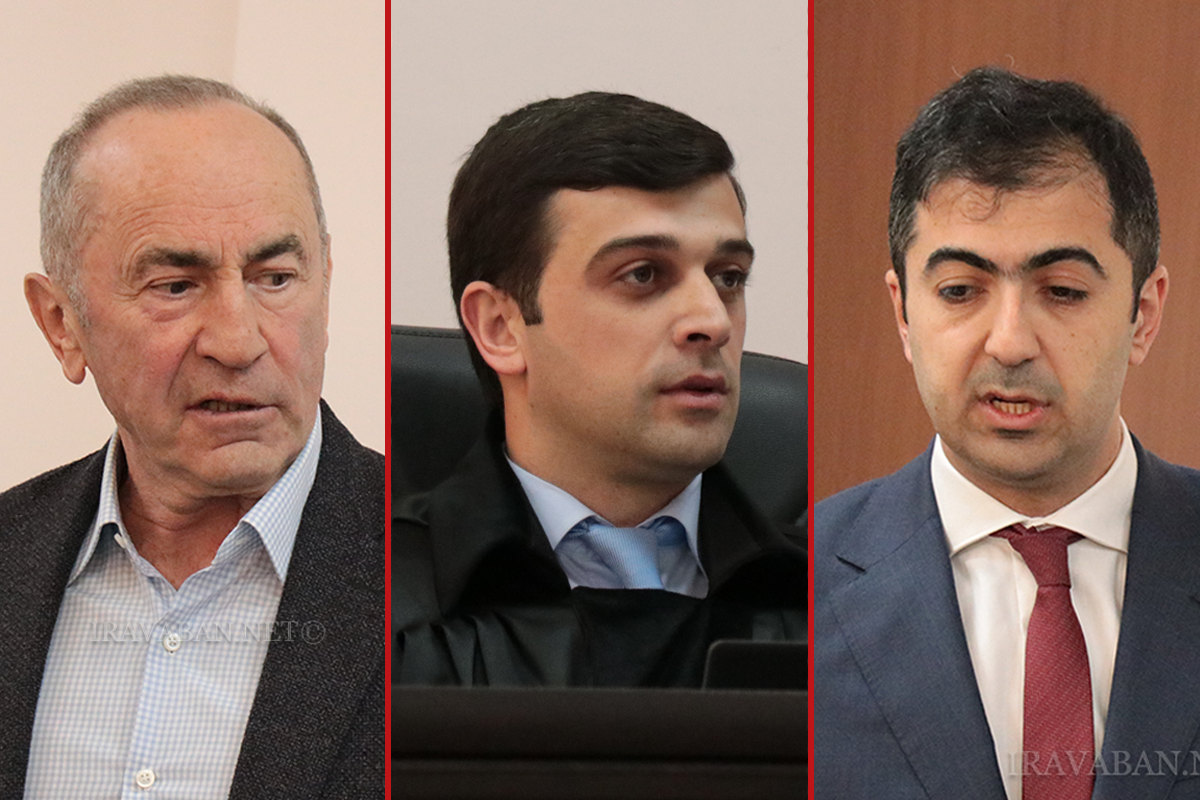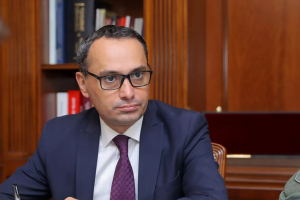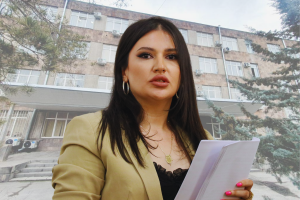The judicial hearing on the “March 1” case against Robert Kocharyan and others continued today, March 14, at the Anti-Corruption Criminal Court.
According to Iravaban.net, at the beginning of the session, Sargis Kloyan, the father of Gor Kloyan who was killed on March 1, 2008, stated that he couldn’t attend the previous court session due to poor health, but had followed the proceedings. Addressing Robert Kocharyan’s advocate Aram Vardevanyan, he called him a “liar.”
In response, Vardevanyan said: “In any case, I understand Mr. Kloyan’s grief, but no one has given him the right to make such expressions toward me. I am not responding out of respect for his age as an Armenian man, but your expression should have legal consequences. By the way, my colleague believes criminal proceedings should be initiated against you. Nevertheless, I respect your age and the court, which is why I’m not responding to you now.”
Armen Gevorgyan’s advocate Lusine Sahakyan noted that she doesn’t understand the court’s discriminatory approach, since the presiding judge imposes reprimands and sanctions for every word from the defense, but in this case only issued a warning.
Second President Robert Kocharyan also made a statement regarding the issue under discussion: “Last time, if I’m not mistaken, advocate Orbelyan received a reprimand for his facial expression, and I for a hand gesture. Now I would very much like this court to be a predictable court. I don’t want to receive a reprimand or have sanctions applied against me or my advocate, because you might apply it three times, then deprive me of my right to an advocate, and achieve a situation where no experienced advocate remains in this hall.
I probably have the right to think that this court might have such a motive. Now my suggestion is the following: define what kind of facial expressions we should have and what movements we should not make to avoid sanctions, perhaps with pictures or some other option, but let us understand how to behave in this court.”
Yuri Khachaturov noted from his seat that each time he becomes convinced that the presiding judge does not show the same attitude toward all participants in the proceedings: “For example, you congratulated Mrs. Sahakyan on March 8, but not Mrs. Karapetyan (his translator – ed.); that is very offensive.”
After this observation, the presiding judge congratulated all women and girls present in the courtroom on the occasion of the month-long celebration.
Next, advocate Aram Orbelyan addressed the new charges brought against Robert Kocharyan, saying that the motion presented by the public prosecutor cannot be subject to examination, and the case should be dismissed regardless of the investigation results.
“This proceeding is taking place within the framework of a non-existent criminal case; not just no charges, but no criminal case. The alleged modified charges had already passed the statute of limitations at the time of presentation. The charges have actually been changed, yet there is an insistence that no change in factual circumstances has taken place. The modified charges do not correspond to the requirements attributed to charges under the law, and they contain certain assertions that render the charges illegal,” said Orbelyan.
According to the advocate, the charges brought against Robert Kocharyan contain assertions about alleged crimes committed by other persons, despite the fact that these persons enjoy immunity, which has not been overcome.
Pointing to existing analyses of legislative changes, Orbelyan said that the modification of charges does not fall within the subject matter of preliminary hearings: “The legislature does not consider it possible to discuss the issue of modifying charges in preliminary hearings, as the discussion of this issue relates to the phase before submission to court, and during the judicial investigation, as an exception, it is the subject of the main hearings.”
He emphasized once more that the motion cannot be presented at this stage, which is why the defense requests that the motion be left without examination.
After a declared 10-minute break, the advocate continued to present his objections, noting that the complete investigation of criminal proceedings differs significantly from the scope presented as a result of the new investigation, because unlike the initial investigation, within which the entire criminal procedural toolkit of the case is employed, in the case of a new investigation, a narrower framework is established, and going beyond it can have serious consequences.
The other portion of the objections will be presented at the next session, which will take place on April 21.
Mariam Shahnazaryan


















